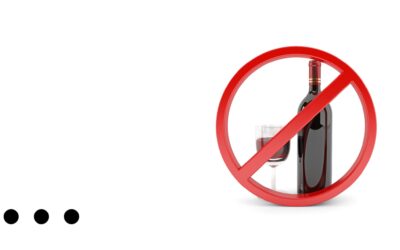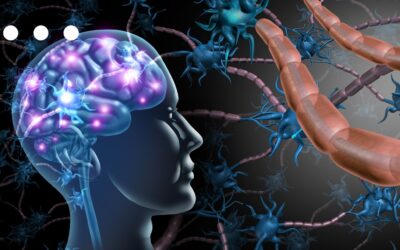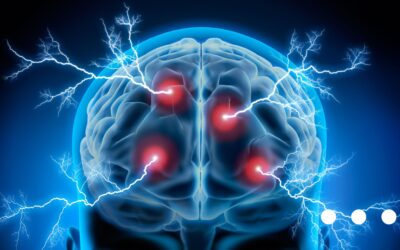Alcohol addiction is a complex and challenging condition that affects millions of individuals and their families. As modern medicine continues to evolve, various treatment options have emerged to help those struggling with this addiction. One of these potential new...
Alcohol
Alcohol addiction treatment is designed to help individuals overcome their dependence on alcohol and return to a healthy lifestyle. Treatment typically involves a combination of therapies, medications, and lifestyle changes. Cognitive-behavioral therapy (CBT) is one of the most commonly used forms of treatment for alcohol addiction. CBT works by helping individuals identify and modify behaviors and thoughts that lead to excessive drinking. In addition, medications may be used to reduce cravings and withdrawal symptoms. Examples of medications used for alcohol addiction treatment include naltrexone and acamprosate (Lintzeris et al., 2020).
Lifestyle changes are also important in alcohol addiction treatment. These changes may include avoiding triggers that lead to drinking, such as certain people or places, as well as engaging in activities that promote sobriety. Exercise, nutrition, and stress management are also important components of treatment. Finally, support from family and friends can be invaluable in helping individuals sustain their recovery (Mackay et al., 2017).
In addition to the above treatments, there are a number of additional resources available for individuals struggling with alcohol addiction. These include support groups, such as Alcoholics Anonymous, and residential treatment programs. Treatment programs often combine various therapies and medications with individual and group counseling (Kranzler et al., 2016).
Overall, alcohol addiction treatment is a multi-faceted process that can help individuals overcome their dependence on alcohol and achieve long-term sobriety. With the right combination of therapies, medications, lifestyle changes, and support, individuals can successfully manage their addiction and regain control of their lives.
Explore the articles below for more information, resources, and guidance on alcohol addiction, treatment, and recovery.
References:
Kranzler, H. R., Burleson, J. A., Delucchi, K. L., & McKay, J. R. (2016). Treatments for alcohol use disorder: A review of the evidence. Neuropsychopharmacology, 41(1), 294–312. https://doi.org/10.1038/npp.2015.203
Lintzeris, N., Gartner, C. E., Bruno, R., Campbell, G., Larance, B., Mattick, R., … & Degenhardt, L. (2020). Medications for Alcohol Use Disorder: A Review. Journal of Addiction Medicine, 14(3), 155–166. https://doi.org/10.1097/ADM.0000000000000541
Mackay, S., Stockwell, T., & Chikritzhs, T. (2017). A systematic review of interventions for the treatment and management of alcohol use disorder and comorbid mental health conditions. Addiction, 112(7), 1164–1179. https://doi.org/10.1111/add.13685
Culture of Alcohol Abuse Continues in the Naval Forces
Sea shanties, the reference of drinking beer foam in the U.S. Navy’s own Anchors Aweigh hymn, and a culture of drunken sailors all contribute to downplaying the seriousness of alcohol use among Navy sailors. As recently as December 2024, preventable deaths from...
What is Wernicke Korsakoff Syndrome in Alcoholics
If you’ve ever blacked out from drinking and couldn’t remember anything from the night before, know that the consequences of alcohol consumption can be much, much worse. Years of excess alcohol consumption can result in permanent memory loss. This condition is known...
Post-COVID Alcohol Consumption Trends
The COVID-19 pandemic profoundly changed how people lived, worked, and coped with stress. One major shift involved alcohol consumption. From social drinking at home to self-medicating for anxiety and depression, alcohol use increased significantly during and after the...
The Newfound Link Between Alcohol and Cancer
When people think about the dangers of alcohol, liver disease often comes to mind first. But did you know alcohol is also a carcinogen? According to the International Agency for Research on Cancer (IARC), alcohol is classified as a Group 1 carcinogen—the same category...
What is Korsakoff Syndrome?
Korsakoff Syndrome is a serious memory disorder often caused by chronic alcohol abuse. It is commonly associated with a deficiency in thiamine (vitamin B1) and is part of a broader condition known as Wernicke-Korsakoff Syndrome. Here’s an in-depth look at its causes,...
End-Stage Alcoholism Treatment
End-stage alcoholism is the most severe and life-threatening phase of alcoholism or alcohol use disorder (AUD), where the body and mind are profoundly affected by years of excessive alcohol consumption. At this stage, individuals face significant physical...
Hyperactive Dopamine Response to Alcohol: Explained
Alcohol’s effects on the brain go beyond short-term relaxation; it actively alters brain chemistry, especially by interacting with dopamine, a neurotransmitter linked to reward and pleasure. This interaction is key to understanding addiction and dependence on alcohol....
What Is Reverse Tolerance? Understanding Sensitization
Reverse tolerance, also known as sensitization, is a reaction in which a person’s body becomes more sensitive to a substance over time. Instead of needing larger doses to feel effects—like with typical drug tolerance—individuals with reverse tolerance experience...
The Rise of Mocktails: Dangers of Marketing to Recovery
Mocktails and non-alcoholic beverages are more popular than ever, gaining a massive following from health-conscious individuals, those exploring sobriety and the "sober curious" movement. With marketing that makes these drinks appear sophisticated, stylish and...
Submit your favorite sober brand to be featured in AT Magazine.
We want to know if you love a brand, company, or organization that you feel has helped you in your sobriety! Provide the name and URL for the brand, as well as why you love this brand. Brands can include anything from non-alcoholic beverages and sober merchandise companies to recovery bloggers and influencers.










